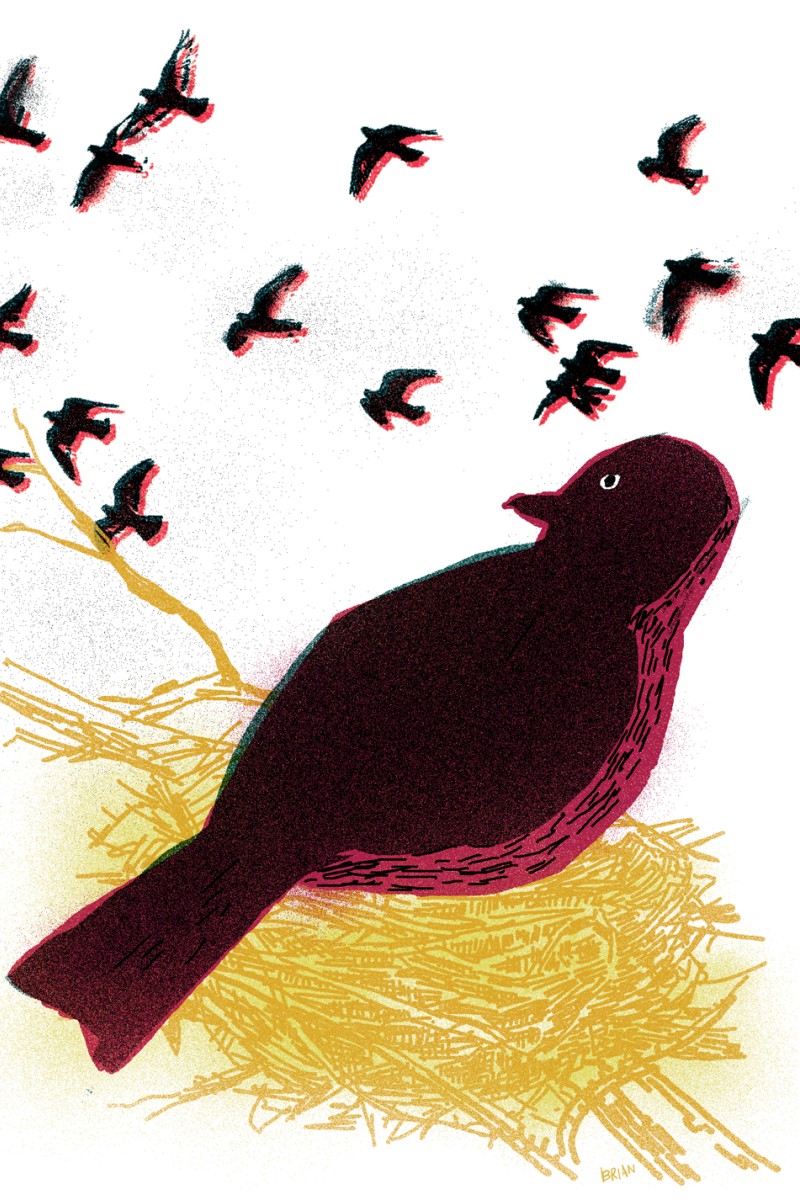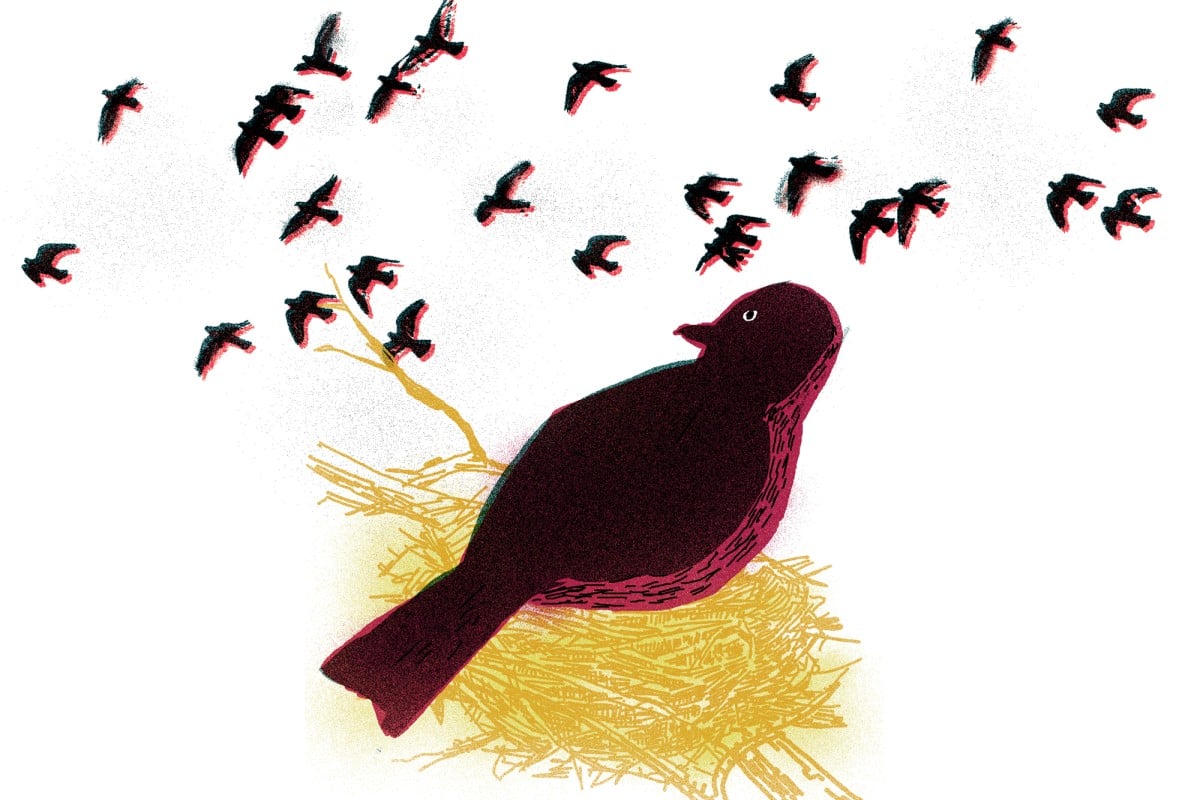
It's a whole new experience as a young domestic helper wrestles with her feelings after arriving in Hong Kong

This story by Catherine Wang, of Chinese International School, took second place in the South China Morning Post and RTHK fourth annual Top Story competition - Junior Category. Catherine was also chosen as one of the Most Active Junior Reporters at the 2014 Young Post Junior Reporter Awards
The woman picks you up from the agency in a silver Mercedes-Benz with a scuffed interior that smells faintly like feet and lotion. She introduces herself as Ms Chang, your new employer, and after a quick explanation of household duties, politely asks you to tell her more about yourself. It's the same story you told to the lady in the office who helped type up your report: you worked in restaurants and small stores, and took care of your siblings. You left home at 25, and went into domestic work - it would be rewarding, Madam, also with good pay.
But there are other reasons, too; other things that you can't say. You didn't want to marry and move to Manila with a man who sold motorcycle parts. You didn't want to make a living selling banana chips in convenience stores. You didn't want to live the rest of your life in mud; in a shadow. So as soon as you saved enough from part-time jobs to buy a plane ticket, you left behind Ilo Ilo, your parents waving until they became black dots on the horizon. On the plane you saw thin clouds sighing in the sky, the sun beating against the sea in a white frenzy, the world moving by underneath. You felt dizzy and asked for two drinks when the flight attendant came. Just because you could.
After a 20-minute drive you pull into a well-lit residential block, at least three times the height of any building at home. You feel dirty as you step into the marble lobby. Madam opens the door to a plush living room with a child curled on the sofa. The girl is around seven or eight, and seems shy and chubby, which makes her seem tender. But when you wave at her, she simply stares at you, her huge eyes framed with surprise, and runs back to her room.
Your room is in the kitchen, and consists of a white, flat bed, a couple of overhead shelves for storing things, and a small bathroom with a sink and a showerhead.
It is impossible to fall asleep. The stars in the night sky don't seem real enough anymore.
* * * * *
Home is the space between the table and the gas burner. Home is the walls, covered in a blur of nativity posters and calendars with the faces of pop stars. It is the laughter of your mother as she shells peanuts. It is the way father sings along to the radio. It is the sting of the broom handle against your legs. Home is holding the hands of your two younger sisters on their way to school, counting the palm trees along the dirt path. Home is coming back again.
You know that you're heading home, indistinctly, the way that a plant can feel its way towards the light. But this is not home because you're walking through a field of wild grass and not through a mud road in a city suburb. There is grass everywhere, as far as the eye can see, and you're sliding through it effortlessly.
Suddenly a shack appears in the middle of the field, and you are standing right outside the window. Inside, Adalyn is helping Father slice the fish, Hannah is playing with her hair, and mother is bouncing Mary on her knee. They seem so close, so real. But you wake up alone, reaching for something that you can't describe, and your fists close around thin air.
It's not light out yet in the kitchen. There are some leftover seeds from last night's chilli sitting on the counter, which you couldn't bear to throw away. So you plant them in a cut water bottle, using some of the soil from the dying potted plant on the balcony.
The dawn feels cool against your back.
* * * * *
The work is simple. Cooking, washing, cleaning, occasionally helping the girl pack her bag or tie her shoes, and maybe water the plants on the balcony. You get one day off per week, usually on Sundays, when there is church in the morning and the girl has piano lessons. Madam sets such strict rules for the upkeep of the household that the work is mindless; even soothing. You often sit on the sofa tenderly and bask in the air-conditioned apartment, pretending that the tidy stacks of books and photo frames are yours.
You meet Amy when you are waiting in line to pay for groceries for the first time and she greets you in Tagalog, making you jump. Her face is as round and flat as an opal, her small eyes drawn behind a set of thick eyebrows that give her a permanent look of disdain. But when you see her, you feel relief. You feel like you found something that you had lost. She gives brief introductions to her friends: Cece is spunky, Tay is interesting. Each has a mobile phone number, and you call them on the way back to the apartment as you get lost walking through the wet markets and glass towers. You would love to wander more, chatting with your newfound friends, but the streetlamps are turning on and you have to get back to make dinner.
Sir appears later that night, a man as squat and faceless as a brick, walking with the tired boredom of a man with great responsibilities. He eats slowly, like a cow, as they sit around the table. Kai-lan writes in an exercise book. Madam asks a question in Chinese every now and then, but Sir grunts in reply. It seems so absurd, so solemn, that you can't help but feel sorry for them.
When you recount this to Amy later on, she laughs. "Things are different here. You'll get used to it."
* * * * *
After the kitchen has been cleaned, you find Kai-lan sitting in the centre of her room, surrounded by her books. There are tears streaming down her face.
"What happened, Shasha?" You search the ground for sharp objects. "Are you okay?"
She points at the page she is on, which shows a picture of a large tree with a round bird sitting in a nest, waving a wing at two smaller ones flying into the setting sun.
"Look, Shasha," you pause carefully, "Don't worry. Birds are meant to fly."
She sniffs and wipes her face on her sleeve. "But won't the mama be sad? Won't they fall?"
You stroke her hair, feeling slightly stupid. "They're together, so the mama bird won't worry, right? Just look how happy they are in the sky. They just keep flying and flying."
"Wow." She leans into you and stares thoughtfully at the pastel sunset. In her gaze, you can see the incomprehensible warmth of the stars, and for the first time, you wish that you had the chance to raise a child before you left.
* * * * *
It's Sunday morning and there are helpers everywhere on a large walkway that bridges one side of a street to the other. There are faces you haven't seen before, and some that look vaguely familiar. But what is the difference? All of them have the same deep brown skin and quiet brown eyes. All of them laugh with the same echoing warmth, as strong and indulgent as the summer wind. These are all women who could run through the rain without closing their eyes, who could chop vegetables without looking at them.
There are portable radios playing pop songs, Filipino songs, and the conversation flows lightly like the afternoon sunshine. There are strangers who pick through the pathway with a look of disgust, but you feel so happy that you don't mind, because you're not alone. And it's almost thrilling, this feeling of being there but not being there.
Eventually, it's time for lunch, and there are large aluminium trays with Palabok, salty fish with shrimp paste, eggs covered in sweet sauce, deep-fried chicken and spaghetti, Polvorones and pasties. It's hard to choose, but in the end you pick up a slice of banana cake and sink into its softness.
"What do you think?" Amy grins. "Sarap, it's good," you nod. You don't say so, but the sweetness brings tears to your eyes.
Your father sits behind a table, counting a stack of coins. Mother is standing quietly by the stove, smiling, stirring something. There is the faint sound of Hannah and Adalyn shuffling in the background. It is raining outside, a typhoon maybe, but the sun is shining and washes the floor with gold.
"Have some arroz, che." Mother sets down a bowl and places a spoon in your hand as if you were five, not 25. But you're not hungry, just empty, and you push it away.
"Are you feeling okay?" she asks.
"I don't know. I mean, it's great to be home." You shrug and sigh. Your legs feel heavy, like they are made of wood.
Your father continues stacking coins, mother smiles and pours more of the porridge into the bowl, which is close to overflowing.
"Aren't you happy here, che?"
Suddenly, you feel the urge to leave. Everything twists out of proportion as you walk to the door of the room, your hand is as thick as a quilt, and you wake up with a sour taste in your mouth.
* * * * *
Madam calls you over to the table in the morning, and you walk over nervously, drying your hands on your pants. She simply hands you a piece of paper. "It's the receipt from the transfer. Now it's all in your account." She adds a tight smile. "Thank you for your work. Good job."
You are too stunned to answer. Could it have been six months already? You unfold the receipt carefully, and the number on it stops you in your tracks. You think about the number of bags of rice that could buy, the number of pairs of shoes and clothes and days of electricity, and you have to sit down for a moment. Things really are different here.
When you check the balcony, you find that the seed has finally blossomed. "Wow!" Shasha gasps. "Look! Look!"
Madam comes to the balcony and nods, her smile vague and distant. "Where did you get it?" she asks with a lilting friendliness.
"Ma'am, I grew it," you say, beaming. "Yes, I did." What a shame, though, that flowers don't last forever.
* * * * *
The routine has become a part of you now. Wake up, cook, clean, eat, sleep, dream. On Sundays you visit Central, have lunch and a laugh with the other Filipinas. Then you swap your dress for a T-shirt and go back to wiping crumbs off chairs. Clean, cook, eat, sleep.
Every now and then you think about going home. It's just a flight away. You still dream about the child, the laughter of your mother, the sound of rain. Home - such lovely dreams; comforting and sleepy, like a sunset.
Now, though, you have to cook dinner. After the meat is done, wash the windows. In the living room, Shasha is singing to herself. As you lift the wok with ease, you realise with a pang of guilt that this is home now.